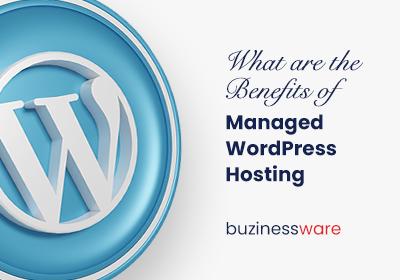Best Hosting company in UAE- Get fast, secure & affordable web solutions from a reliable source. Since 2002, Buzinessware is your most trusted web hosting company in Saudi Arabia
UAE's top hosting provider | Best Hosting company in UAE | Cheap Hosting UAE | Top Hosting from UAE Data Center | Physicaly hosted server in UAE | Best Hosting from UAE Data Center
The Ultimate Guide to Finding the Perfect Hosting Service in UAE
Finding the perfect web hosting service in Dubai, or anywhere for that matter, requires careful consideration of various factors to ensure that your website runs smoothly, securely, and efficiently. Here's a comprehensive guide to help you find the best web hosting service for your needs:
- Determine Your Hosting Needs: Before you start looking for a web hosting service, it's crucial to assess your website's requirements. Consider factors such as the type of website you're building, anticipated traffic volume, specific features you'll need (e.g., e-commerce functionality, content management system support), and any special software or scripting languages required.
- Types of Hosting in UAE: Understand the different types of hosting available. Common options include shared hosting, VPS (Virtual Private Server) hosting, dedicated hosting, and cloud hosting. Each has its own advantages and is suitable for different website needs and budgets.
- Server Location: Since you're looking for web hosting specifically in Dubai, consider the server location. Hosting your website on servers located in Dubai can help reduce latency and improve loading speeds for visitors in the region.
- Uptime Reliability: Look for a web hosting provider that guarantees high uptime reliability. Aim for at least 99.9% uptime to ensure that your website is accessible to visitors at all times. Check reviews and testimonials to gauge the reliability of different hosting providers.
- Performance and Speed: Opt for a hosting service that offers fast loading times and excellent performance. Factors such as server hardware, network infrastructure, and caching mechanisms can influence website speed. Additionally, consider providers that offer content delivery networks (CDNs) to further improve loading speeds for visitors worldwide.
- Security Measures: Security is paramount for any website. Choose a hosting provider that prioritizes security and offers features such as SSL certificates, regular backups, malware scanning, DDoS protection, and firewalls to safeguard your website's data and visitors' information.
- Scalability and Flexibility: Your hosting needs may evolve over time as your website grows. Ensure that your chosen web hosting service can accommodate scalability, allowing you to easily upgrade or downgrade your hosting plan as needed without experiencing downtime or other disruptions.
- Customer Support: Reliable customer support is essential, especially if you encounter technical issues or have questions about your hosting service. Look for providers that offer 24/7 customer support through various channels such as live chat, email, and phone.
- Reputation and Reviews: Research the reputation of hosting providers by reading reviews, testimonials, and independent evaluations from other users. Pay attention to factors such as customer satisfaction, reliability, and support responsiveness.
- Price and Value: While cost is an important factor, it shouldn't be the sole determining factor when choosing a web hosting service. Evaluate the features, performance, and support offered by different providers to determine the best value for your budget.
- Add-Ons and Extras: Some hosting providers offer additional features and services such as domain registration, website builders, email hosting, and marketing tools. Consider whether these extras are beneficial for your website and factor them into your decision-making process.
- Terms of Service and Money-Back Guarantee: Carefully review the terms of service, including any limitations or restrictions, before committing to a hosting provider. Additionally, look for providers that offer a money-back guarantee, allowing you to try out their services risk-free.
By considering these factors and conducting thorough research, you can find the perfect web hosting service in Dubai that meets your website's needs and provides a reliable and secure hosting environment.
Windows web hosting v/s Linux web hosting and it'sadvatages
Choosing between Windows and Linux web hosting depends on various factors including your specific needs, preferences, and the technology stack you plan to use for your website. Here's a comparison of Windows and Linux web hosting along with their advantages:
Linux Web Hosting:
- Open Source: Linux hosting is based on open-source technologies, which means it's generally more cost-effective as you don't have to pay licensing fees.
- Compatibility: Linux hosting supports a wide range of programming languages and frameworks such as PHP, Perl, Python, and Ruby on Rails. It's particularly well-suited for popular CMS platforms like WordPress, Joomla, and Drupal.
- Stability and Reliability: Linux servers are known for their stability and reliability. They typically require fewer reboots and are less prone to crashes.
- Security: Linux is inherently more secure due to its open-source nature and the active community that constantly identifies and patches security vulnerabilities.
- Flexibility and Customization: Linux offers greater flexibility and customization options for advanced users who want to configure their server environment according to their specific requirements.
- Command Line Interface (CLI): Linux hosting provides powerful command-line tools, making it easier for experienced users to manage and administer their servers efficiently.
Windows Web Hosting:
- Windows-Specific Technologies: If your website or web application is built using Microsoft technologies such as ASP.NET, ASP, or MS SQL databases, then Windows hosting would be the more suitable choice.
- Integration with Microsoft Products: If you are using Microsoft products extensively in your organization, such as SharePoint or Exchange, Windows hosting might provide better integration and compatibility.
- Ease of Use for Windows Users: For users familiar with Windows operating systems, managing a Windows server might feel more intuitive due to the familiarity of the interface.
- Support for .NET Framework: Windows hosting supports .NET framework, making it ideal for developers working with ASP.NET applications.
- Remote Desktop Access: Windows hosting typically includes Remote Desktop access, allowing users to directly access and manage the server's graphical user interface.
Advantages of Each:
Linux Hosting Advantages:
- Cost-effective due to open-source nature.
- Wide compatibility with popular programming languages and frameworks.
- Stability and reliability.
- Strong security with active community support.
- Flexibility and customization options.
- Powerful command-line tools.
Windows Hosting Advantages:
- Ideal for websites and applications built using Microsoft technologies.
- Better integration with Microsoft products.
- Intuitive management interface for Windows users.
- Support for .NET framework and ASP.NET applications.
- Remote Desktop access for graphical server management.
Ultimately, the choice between Linux and Windows hosting should be based on your specific requirements, including the technologies you plan to use, your budget, and your familiarity with the respective platforms.
FAQ -
Is Cloud Hosting better than Shared Hosting?
Whether cloud hosting is better than shared hosting depends on your specific needs and requirements. Both types of hosting have their own advantages and disadvantages.
Shared Hosting:
- Cost-effectiveness: Shared hosting tends to be more affordable because resources are shared among multiple users on the same server.
- Ease of use: Shared hosting is usually easier to set up and manage, making it a good option for beginners or those with minimal technical expertise.
- Limited resources: Since resources are shared, your website's performance can be affected by other websites on the same server. Traffic spikes or resource-heavy websites can slow down your site.
- Limited scalability: Shared hosting plans typically have limitations on resources such as storage, bandwidth, and CPU usage. If your website outgrows these limits, you may need to upgrade to a more expensive plan or switch to a different hosting type.
Cloud Hosting:
- Scalability: Cloud hosting offers scalability, allowing you to easily scale resources up or down based on your needs. This flexibility makes it suitable for websites with fluctuating traffic levels.
- Reliability: Cloud hosting typically utilizes multiple servers, which increases redundancy and reduces the risk of downtime. If one server fails, your website can automatically switch to another server to maintain uptime.
- Performance: Cloud hosting can offer better performance than shared hosting, especially during traffic spikes, as resources are distributed across multiple servers.
- Pay-as-you-go pricing: Many cloud hosting providers offer pay-as-you-go pricing models, where you only pay for the resources you use. This can be cost-effective for websites with unpredictable or fluctuating traffic.
Conclusion:
If you're running a small website with relatively low traffic and you're on a tight budget, shared hosting might be the better option due to its affordability and simplicity. However, if you anticipate your website growing rapidly or experiencing fluctuating traffic levels, or if you require higher performance and reliability, then cloud hosting would likely be the better choice due to its scalability, reliability, and performance advantages. Ultimately, it's essential to assess your specific needs and budget to determine which type of hosting is the best fit for your website.







